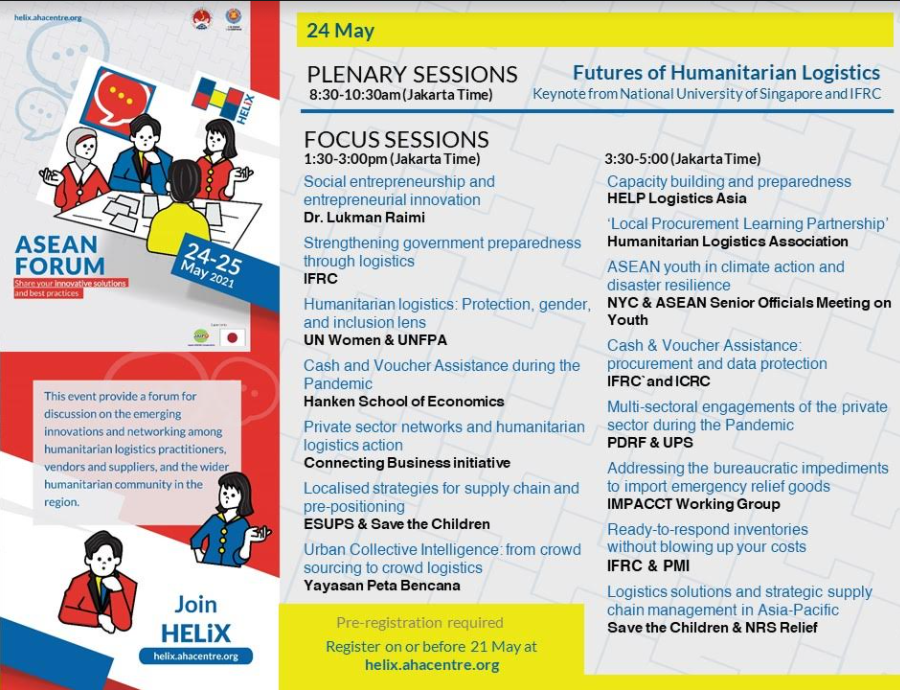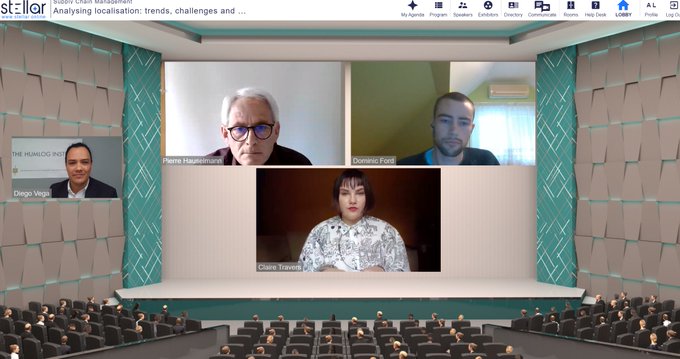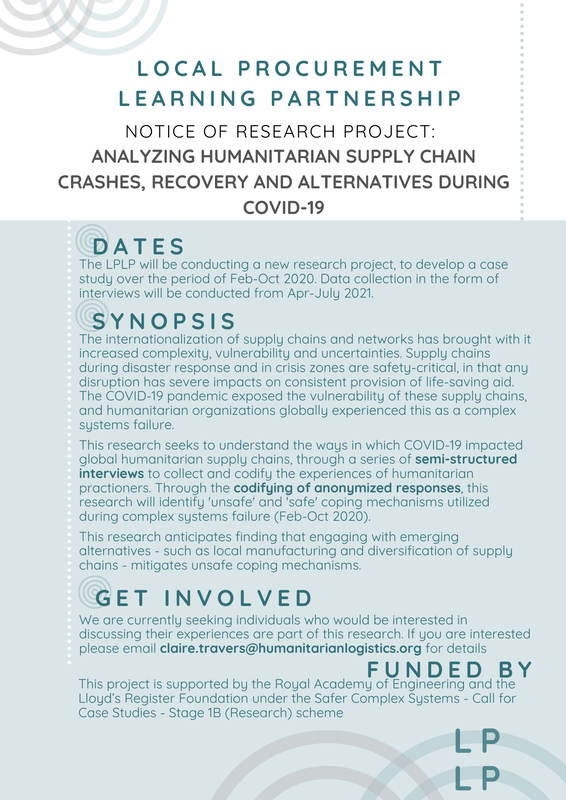|
On 24th March, Claire was invited to lead a session at the HELIX EXPO 21, on the Local Procurement Learning Partnership.
I was invited to speak in a personal capacity at the World Humanitarian Forum, as part of the panel on analysing localisation. Claire was invited to present the LPLP at the UN as part of HNPW, alongside George Fenton from the HLA. The presentation was to 80 attendees and was focused on identifying common barriers and challenges to procuring locally.
In February I was invited to present the Local Procurement Learning Partnership (LPLP) to the IAPG on behalf of the HLA. In 2021, I was pleased to receive a grant from the Royal Academy of Engineering and the Lloyds Register to investigate safer complex systems in humanitarian supply chains.
The internationalization of supply chains and networks has brought with it increased complexity, vulnerability and uncertainties. Supply chains during disaster response and in crisis zones are safety-critical, in that any disruption has severe impacts on consistent provision of life-saving aid. The COVID-19 pandemic exposed the vulnerability of these supply chains, and humanitarian organizations globally experienced this as a complex systems failure. This research seeks to understand the ways in which COVID-19 impacted global humanitarian supply chains, through a series of semi-structured interviews to collect and codify the experiences of humanitarian practioners. Through the codifying of anonymized responses, this research will identify 'unsafe' and 'safe' coping mechanisms utilized during complex systems failure (Feb-Oct 2020). This research anticipates finding that engaging with emerging alternatives - such as local manufacturing and diversification of supply chains - mitigates unsafe coping mechanisms |
Archives
July 2021
Categories |



 RSS Feed
RSS Feed
